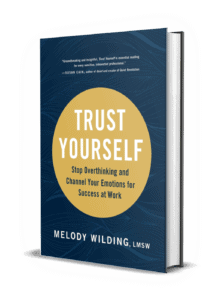You would never buy a car without first researching different models and prices, right? Nowadays it’s unlikely you’d even leave the house without first looking up reviews and directions to wherever you’re going.
So why is it that so many of us go into negotiations without a roadmap or any preparation? Why, then, when it comes to important – possibly financially game changing — conversations about negotiating salary or raising rates, do many of us cross our fingers and simply hope for the best?
If you want to nail your next negotiation and ensure the best possible outcome, there are a few critical ways to prepare.
Adjust your mindset
Each of us carries around certain beliefs about money and what we think we deserve that are the result of our upbringing, self-image, culture, and past experiences with negotiation. If negotiation feels scary or awkward to you, create time to investigate the roots of your discomfort (here’s how) in order to discharge their hold over you. As Seth Godin says, “If money is an emotional issue for you, you’ve just put your finger on a big part of the problem. No one who is good at building houses has an emotional problem with hammers. Place your emotional problems where they belong, and focus on seeing money as a tool.”
Outline your ask
Years ago, I used to prepare for important negotiations by painstakingly writing down everything I wanted to say, then, practicing my speech for hours. To my disappointment, each time I’d enter the conversation my carefully crafted speech went right out the window and I found myself totally unable to improvise. Scripting what you want to say word-for-word is a crutch: it may ease your anxiety, but does nothing to advance your skills and help you become a more natural negotiator. Instead, focus on creating high-level “headlines” that represent the progression of your argument. Let’s say you’re approaching a client about raising your rates. Your outline may look something like this:
- We’ve been working together for awhile, here’s our successes to date
- Show concrete examples of ROI you’ve brought your client
- Here’s the other areas of your business I propose we work on improving next
- Explain to your client the new projects you’d like to tackle
- To give you my full attention, my new rate will be $100/hr
- Present your offer, which you’ve already justified with evidence of ROI and a pro-active vision for the future
- These are the benefits to you
- Explain to your client what’s in it for them
By developing this “cheat sheet”, you can ensure your conversation stays on track and that you cover everything that’s important to you – all while appearing confident and more natural.
Make “yes” a no-brainer
Think through how you can cut down on the amount of time or steps it takes to get your client or boss to say yes. Prepare any documentation or materials ahead of time that remove barriers to support this. For example, could you come prepared with a sample work plan for the new project you’re proposing? Or have any papers that require sign off or signature ready to go? Your goal is to make it as easy and painless as possible for your counterpart to say “yes” and take action in the moment.
Preparing for an upcoming negotiation? Snag my negotiation course which offers worksheets, scripts, and step-by-step negotiation prep exercises to help you master the art of confidently asking for what you want — and getting it!









